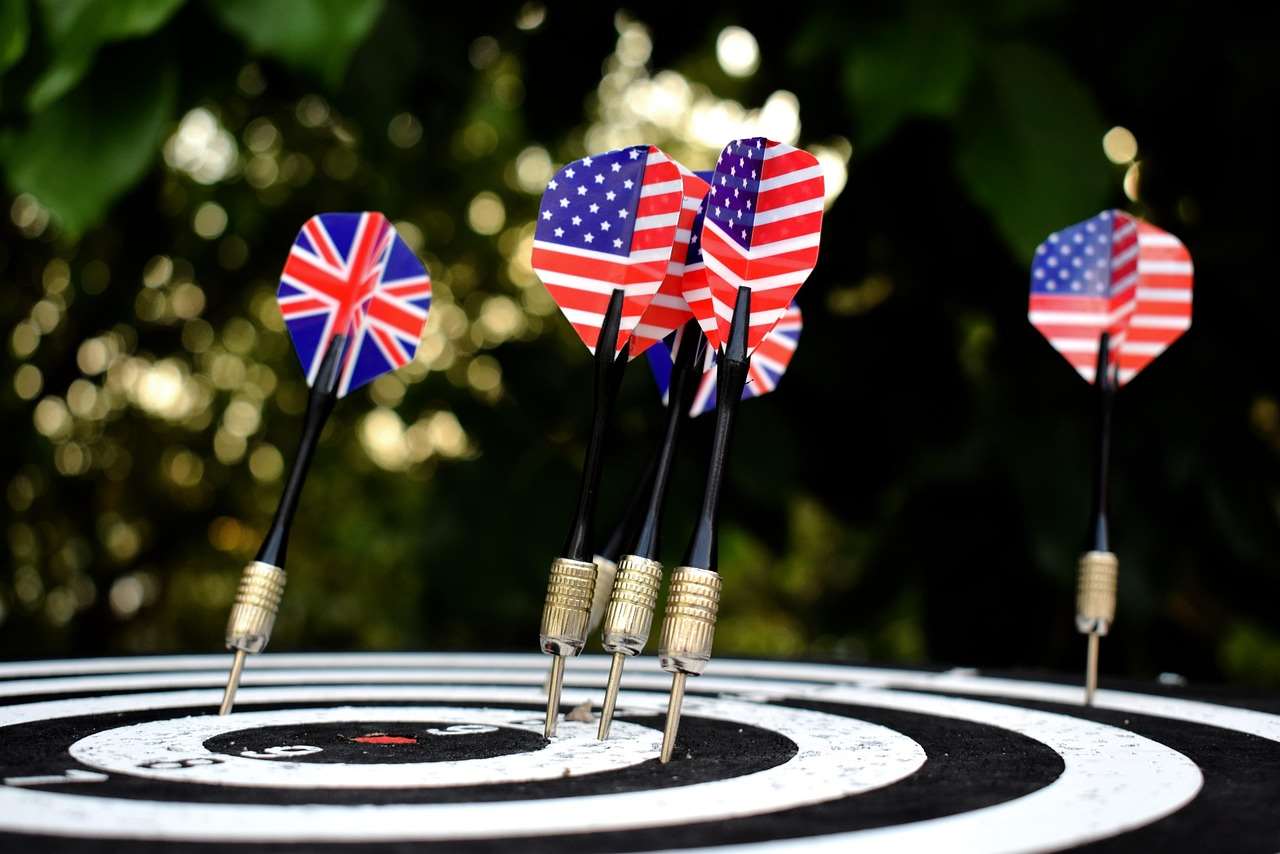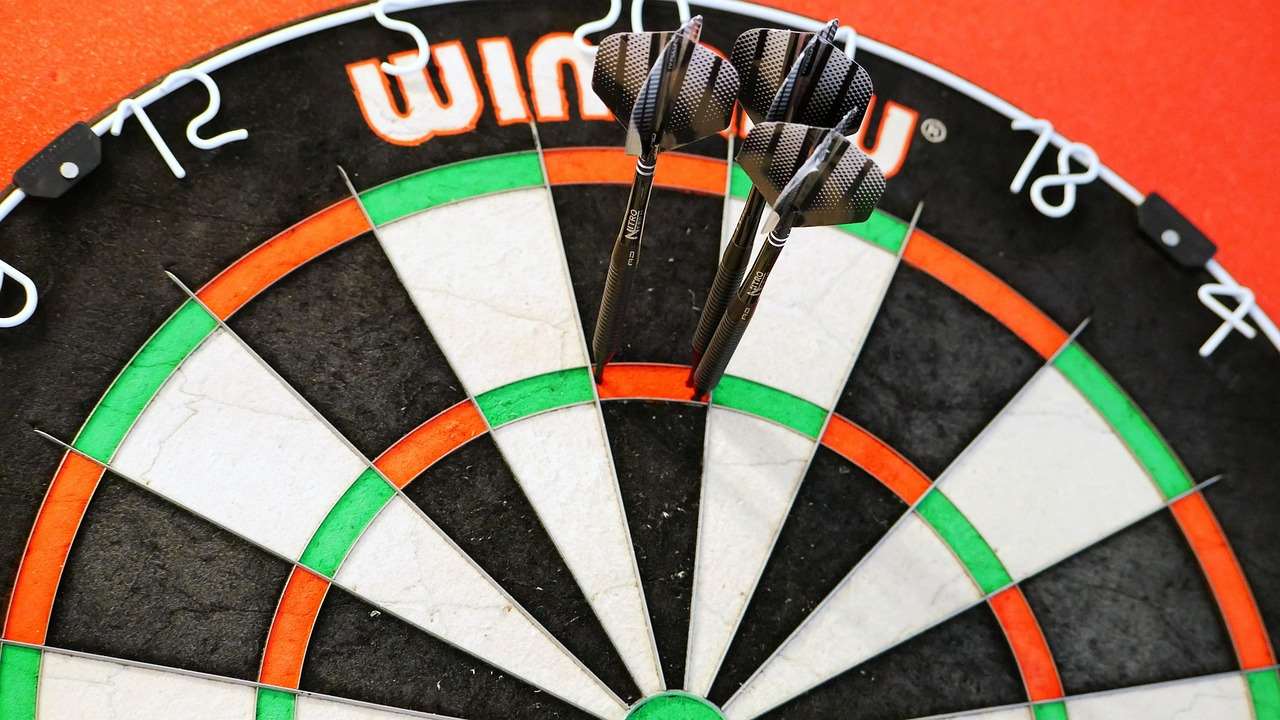The role of a **tournament director** is pivotal in ensuring a smooth, fair, and enjoyable experience for all participants; at its core, it’s about managing every facet of the event, from initial planning to final prize distribution. This article will delve into the multifaceted **tournament director responsibilities**, covering everything from logistical planning and rule enforcement to conflict resolution and participant communication.
⚠️ Still Using Pen & Paper (or a Chalkboard)?! ⚠️
Step into the future! The Dart Counter App handles all the scoring, suggests checkouts, and tracks your stats automatically. It's easier than you think!
Try the Smart Dart Counter App FREE!Ready for an upgrade? Click above!
Understanding Tournament Director Responsibilities
A tournament director is the backbone of any successful competition. They are responsible for overseeing all aspects of the event, ensuring fair play, and creating a positive environment for participants. The scope of tournament director responsibilities can vary depending on the size and complexity of the tournament, but some core duties remain consistent.
Key Areas of Responsibility
- Planning and Organization: This includes defining the tournament format, scheduling matches, securing venues, and managing registration.
- Rule Enforcement: Ensuring all participants adhere to the established rules and regulations.
- Conflict Resolution: Addressing disputes and making fair judgments.
- Communication: Keeping participants informed about tournament schedules, results, and any changes.
- Logistics: Managing equipment, supplies, and staffing.
- Financial Management: Handling entry fees, prize money, and other tournament-related expenses.

In essence, the tournament director acts as the central point of contact and decision-maker for the entire event.
Pre-Tournament Preparations: Setting the Stage for Success
The success of any tournament hinges on thorough preparation. The tournament director responsibilities begin long before the first match is played, with meticulous planning and organization.
Developing a Comprehensive Plan
A detailed tournament plan is essential. This plan should include:
- Defining Tournament Goals: What are the objectives of the tournament? (e.g., fundraising, promoting a sport, providing competitive opportunities)
- Determining the Format: Single elimination, double elimination, round robin, or a combination?
- Establishing Rules and Regulations: Clear and concise rules are crucial for fair play. Consider including details about tie-breaking procedures, code of conduct, and dispute resolution processes. You might want to look into adapting darts rules for beginners if necessary.
- Creating a Schedule: A well-structured schedule ensures that the tournament runs smoothly and efficiently.
- Securing a Venue: The venue should be appropriate for the size of the tournament and have the necessary facilities (e.g., playing area, seating, restrooms).
- Budgeting: Develop a realistic budget that includes all anticipated expenses (e.g., venue rental, equipment, prizes, marketing).
Participant Management: Registration and Communication
Managing participant registration and maintaining clear communication are critical for a positive experience. The tournament director should:
- Implement a Registration System: This could be online, in-person, or a combination of both. Collect all necessary information from participants, such as contact details, skill level, and emergency contact information.
- Communicate Tournament Information: Keep participants informed about all aspects of the tournament, including the schedule, rules, and any updates or changes. Use email, social media, and a tournament website to disseminate information.
- Handle Inquiries and Provide Support: Be readily available to answer questions and provide assistance to participants.
During the Tournament: Ensuring Fair Play and Smooth Operations
Once the tournament is underway, the tournament director responsibilities shift to managing the event in real-time, ensuring fair play, and resolving any issues that may arise.

Rule Enforcement and Dispute Resolution
Maintaining fair play is paramount. The tournament director must:
- Enforce the Rules Consistently: Ensure that all participants adhere to the established rules and regulations.
- Address Disputes Fairly: When disputes arise, listen to both sides of the story, gather evidence, and make a fair and impartial decision.
- Document all Rulings: Keep a record of all disputes and resolutions.
Managing Logistics and Staff
Effective logistics and staffing are essential for smooth operations. The tournament director should:
- Oversee Venue Setup: Ensure that the venue is properly set up and ready for play.
- Manage Staff and Volunteers: Assign tasks to staff and volunteers, provide training, and ensure that they are performing their duties effectively.
- Monitor Equipment and Supplies: Ensure that all necessary equipment and supplies are available and in good working order.
- Handle Emergencies: Be prepared to handle emergencies, such as injuries or inclement weather.
You may want to find out about Basic Darts Fundamentals for Beginners, depending on who is participating.
Communication and Updates
Keeping participants informed throughout the tournament is crucial. The tournament director should:
- Provide Regular Updates: Announce match results, schedule changes, and any other relevant information.
- Use Multiple Communication Channels: Utilize email, social media, and public announcements to reach all participants.
- Be Accessible and Responsive: Be available to answer questions and address concerns.

Post-Tournament Activities: Wrapping Up and Learning from the Experience
The tournament director responsibilities don’t end when the final match is over. There are several important post-tournament activities that need to be addressed.
Prize Distribution and Awards Ceremony
Awarding prizes and recognizing the winners is an important part of the tournament experience. The tournament director should:
- Distribute Prizes According to the Rules: Ensure that prizes are awarded fairly and accurately.
- Organize an Awards Ceremony: Recognize the winners and thank all participants and volunteers.
Financial Reconciliation
Accurate financial records are essential. The tournament director should:
- Reconcile Income and Expenses: Ensure that all income and expenses are accounted for.
- Prepare a Financial Report: Summarize the financial performance of the tournament.
Gathering Feedback and Evaluation
Learning from each tournament is crucial for continuous improvement. The tournament director should:
- Collect Feedback from Participants: Use surveys or informal feedback sessions to gather input on the tournament experience.
- Evaluate the Tournament’s Success: Assess whether the tournament achieved its goals.
- Identify Areas for Improvement: Use the feedback and evaluation to identify areas where the tournament can be improved in the future.

Essential Skills for a Successful Tournament Director
To effectively fulfill tournament director responsibilities, a specific skillset is required. These skills contribute significantly to the overall success of the event.
Organizational and Time Management Skills
Strong organizational skills are crucial for managing the many details involved in planning and executing a tournament. Effective time management is also essential for meeting deadlines and keeping the tournament on schedule.
Communication and Interpersonal Skills
The ability to communicate clearly and effectively with participants, staff, and volunteers is vital. Strong interpersonal skills are also needed for resolving conflicts and building relationships.
Problem-Solving and Decision-Making Skills
Problem-solving skills are essential for addressing unexpected issues that may arise during the tournament. The ability to make sound decisions quickly and under pressure is also crucial.
Leadership and Team Management Skills
A tournament director must be able to lead and motivate staff and volunteers to work together effectively. Strong team management skills are essential for creating a positive and productive environment.

Tools and Resources for Tournament Directors
Several tools and resources can help tournament directors manage their events more efficiently.
Tournament Management Software
Tournament management software can automate many of the tasks involved in running a tournament, such as registration, scheduling, and scorekeeping. Some popular options include Tournament Software, Challonge, and Smoothcomp.
Online Communication Platforms
Online communication platforms such as email, social media, and tournament websites can be used to keep participants informed and engaged. You could even try creative dart rules for parties and social gatherings to keep them engaged.
Rulebooks and Regulations
Having access to official rulebooks and regulations for the specific sport or activity is essential for ensuring fair play. These resources can help you resolve disputes and make informed decisions.
Networking and Mentorship
Connecting with other tournament directors can provide valuable insights and support. Consider joining industry associations or seeking mentorship from experienced professionals. You may also have to account for how to make darts fairer with handicap rules if the tournament has players with varying abilities.
Conclusion
Mastering the **tournament director responsibilities** is a challenging but rewarding endeavor. By understanding the key areas of responsibility, developing essential skills, and utilizing available tools and resources, you can create successful and enjoyable tournaments for all participants. From planning and organization to rule enforcement and communication, every aspect of the role contributes to the overall success of the event. Remember that continuous learning and adaptation are crucial for staying ahead and delivering exceptional tournament experiences. Now, take the next step and leverage these insights to plan your best tournament yet! Consider researching tournament management software or networking with experienced tournament directors to further enhance your skills.
Hi, I’m Dieter, and I created Dartcounter (Dartcounterapp.com). My motivation wasn’t being a darts expert – quite the opposite! When I first started playing, I loved the game but found keeping accurate scores and tracking stats difficult and distracting.
I figured I couldn’t be the only one struggling with this. So, I decided to build a solution: an easy-to-use application that everyone, no matter their experience level, could use to manage scoring effortlessly.
My goal for Dartcounter was simple: let the app handle the numbers – the scoring, the averages, the stats, even checkout suggestions – so players could focus purely on their throw and enjoying the game. It began as a way to solve my own beginner’s problem, and I’m thrilled it has grown into a helpful tool for the wider darts community.